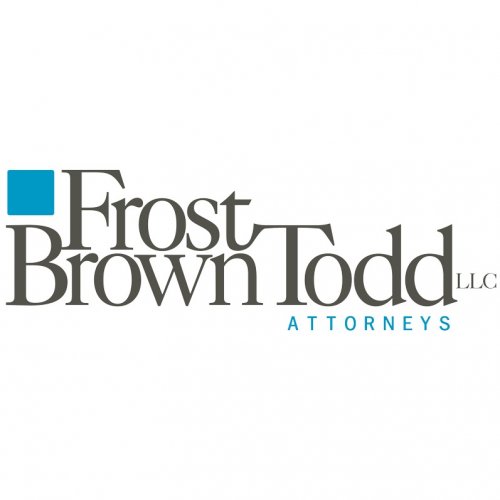Best Trademark Lawyers in Cincinnati
Share your needs with us, get contacted by law firms.
Free. Takes 2 min.
List of the best lawyers in Cincinnati, United States
About Trademark Law in Cincinnati, United States
Trademark law in Cincinnati, United States provides legal protection for distinctive marks, such as logos, names, or slogans, that are used to identify and distinguish the goods or services of one entity from another. This protection helps prevent confusion among consumers and allows businesses to establish and maintain their brand identity.
Why You May Need a Lawyer
There are several common situations where you may require the assistance of a trademark lawyer in Cincinnati:
- If you're considering filing a trademark application
- If your trademark application has been rejected
- If you believe someone is infringing on your trademark rights
- If you have received a cease-and-desist letter or a trademark infringement lawsuit
- If you need help with licensing or assigning your trademark
Local Laws Overview
When it comes to trademark law, here are some key aspects of the local laws in Cincinnati, United States:
- Trademark rights are primarily governed by federal law in the United States, specifically the Lanham Act.
- The United States Patent and Trademark Office (USPTO) is responsible for registering trademarks at the federal level.
- Cincinnati falls within the jurisdiction of the United States District Court for the Southern District of Ohio, where trademark-related disputes may be resolved.
Frequently Asked Questions
1. Can I use the TM symbol without registering my trademark?
Yes, you can use the TM symbol to indicate that you are claiming common law trademark rights in your mark. However, it does not provide the same level of legal protection as a federally registered trademark.
2. How long does a trademark registration last?
In the United States, a trademark registration can last indefinitely as long as you continue using the mark and file the required maintenance documents and fees at the appropriate times.
3. What is the difference between a trademark and a copyright?
A trademark protects logos, names, or slogans that identify goods or services, while a copyright protects original creative works, such as literary or artistic creations.
4. Can I trademark a domain name?
In some cases, you may be able to register a domain name as a trademark if it meets the requirements for distinctiveness and is used to identify and distinguish your goods or services.
5. What should I do if someone is infringing on my trademark rights?
If you believe someone is infringing on your trademark rights, it is important to gather evidence and consult with a trademark lawyer to determine the best course of action. This may involve sending a cease-and-desist letter or initiating a trademark infringement lawsuit.
Additional Resources
- United States Patent and Trademark Office (USPTO) - https://www.uspto.gov/
- Cincinnati Bar Association - https://www.cincybar.org/
- Ohio Secretary of State - Trademarks - https://www.sos.state.oh.us/businesses/records/trademarks/
Next Steps
If you require legal assistance in trademark matters in Cincinnati, we recommend reaching out to an experienced trademark lawyer who can provide personalized advice based on your specific situation. They will guide you through the necessary steps to protect your trademark rights and help you navigate any legal challenges that may arise.
Lawzana helps you find the best lawyers and law firms in Cincinnati through a curated and pre-screened list of qualified legal professionals. Our platform offers rankings and detailed profiles of attorneys and law firms, allowing you to compare based on practice areas, including Trademark, experience, and client feedback.
Each profile includes a description of the firm's areas of practice, client reviews, team members and partners, year of establishment, spoken languages, office locations, contact information, social media presence, and any published articles or resources. Most firms on our platform speak English and are experienced in both local and international legal matters.
Get a quote from top-rated law firms in Cincinnati, United States — quickly, securely, and without unnecessary hassle.
Disclaimer:
The information provided on this page is for general informational purposes only and does not constitute legal advice. While we strive to ensure the accuracy and relevance of the content, legal information may change over time, and interpretations of the law can vary. You should always consult with a qualified legal professional for advice specific to your situation.
We disclaim all liability for actions taken or not taken based on the content of this page. If you believe any information is incorrect or outdated, please contact us, and we will review and update it where appropriate.









